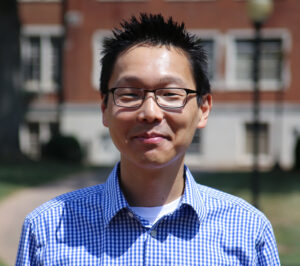
When Teaching Pivots to Meet the “Fierce Urgency of Now”
For the past twelve months, I have made several pivots in my teaching to meet what Dr. Martin Luther King, Jr. identified in his 1967 speech on the war in Vietnam at The Riverside Church in New York City as “the fierce urgency of now.” Dr. King began by affirming the activists from Clergy and Laymen Concerned About Vietnam for their moral vision in organizing people together with the following call: “A time comes when silence is betrayal.” Dr. King then connected the organization’s call with his own challenge to act for peace in Vietnam and join in the global struggle against poverty and racism: “We are confronted with the fierce urgency of now. In this unfolding conundrum of life and history, there is such a thing as being too late.”
In addition to teaching through a global pandemic, we are tasked with the responsibility to educate toward racial, social, and intersectional justice. We teach in different disciplines and at diverse institutions, but we inhabit the same world. We live in a world where millions marched to protest the killings of George Floyd and Breonna Taylor, anti-Black racism, and police brutality in May, June, and July. We all witnessed the violent insurrection and mob violence at the U.S. Capitol on January 6. More recently, we grieve and rage at the horrific murders of Soon Chung Park, Hyun Jung Grant, Suncha Kim, Yong Ae Yue, Delaina Ashley Yaun, Xiaojie Tan, Daoyou Feng, and Paul Andre Michels across several spas in metro Atlanta on March 16.
In meeting “the fierce urgency of now,” my teaching pivots, as an historian of Christianity in the United States, to reveal that the scourge of hate and violence against Black, Indigenous, and other Persons of Color and the sins of white supremacy and misogyny have roots in Christian traditions with long records and unjust legacies of nativism, settler colonialism, sexism, and slavery. I have pivoted to share honestly with students about how my education at a predominantly white and theologically conservative seminary left me unprepared to confront the challenges before us because of several pedagogical imbalances and gaps. The pedagogies of my professors overemphasized the courageous ministries of Christian heroines and heroes who strove to combat injustice and underemphasized the complicity of Christians in perpetuating discrimination and hate against women, persons of color, and LGBTQIA+ persons. These pedagogies also elevated white men by treating their perspectives as normative and either erased women, persons of color, and LGBTQIA+ persons or reduced the presence of “diverse” voices to recommended (versus required) readings or one isolated lesson under a mishmash of topics.
With this pivot, I am implicitly prompting students to assess what they are learning in my classroom as well as in the classrooms of my colleagues at our seminary. Is my pedagogy as a teacher better than what I experienced as a student? Does the teaching and learning at my seminary connect in meaningful ways with the congregations and ministry contexts our students inhabit? In reflecting with my students over the past year, I can offer two insights.
The first insight is that pivots to address anti-Black, anti-Asian, and other forms of racial injustice are most helpful when they reinforce and strengthen existing course content. When a course syllabus already contains multiple lessons about communities of color with assigned readings from many scholars of color, pivots to cover urgent events are organically integrated to the foundational structure of the teaching and learning. When a pivot requires the introduction of different lessons or a sudden detour to new assigned readings, it may reveal a larger imbalance or gap in the course syllabus specifically and teaching philosophy more broadly.
The second insight is that pivots are generative and effective when they cultivate collaboration in the classroom. In other words, a pivot works best as an invitation to learn together with students rather than an opportunity to be the “sage on the stage” with all the prescriptions to the world’s most pressing problems. One of the most useful prompts in my pivots is to ask students to share what is happening in their families and communities of faith and to discuss together how certain religious beliefs in our diverse Christian traditions have shaped different responses to racial, social, and intersectional justice in the forms of righteous activity, passive inactivity, and hateful violence. Heeding Dr. King’s message, we seek to confront “the fierce urgency of now” through genuine, vulnerable, and collaborative dialogue engaging the challenges, prejudices, and opportunities in our communities of faith.
Leave a Reply